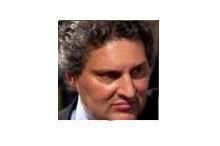
IFR Editor-at-large Keith Mullin
WHAT HAS NEW York Superintendent of Financial Services Benjamin Lawsky started? His temper tantrum against Standard Chartered raised the ire of other US regulatory agencies, furious that he went it alone; he’s been outed as a political adventurer; and London mayor Boris Johnson and UK lawmaker John Mann have accused him of launching a conspiratorial attack to undermine London’s status as a global financial centre.
“I think it’s a concerted effort that’s been organised at the top of the US government. I think this is Washington trying to win a commercial battle to have trading from London shifted to New York,” Mann said. Wonderful stuff. Bank of England governor Mervyn King also stepped into the ring, clearly irked by the lack of co-ordination between US regulators and by Lawsky’s mouthing off before the investigation had concluded.
And in case the StanChart saga weren’t enough, China has been dragged into the trading-with-Iran fray after the US Treasury imposed sanctions against Bank of Kunlun, a subsidiary of China National Petroleum Corp. This unleashed a furious reaction from the Chinese foreign ministry, incensed at the extraterritorial application of US laws to Chinese entities.
This issue of extra-territoriality takes us right back to the alleged comment unofficially attributed to Standard Chartered’s group finance director Richard Meddings and included in Lawsky’s wonky complaint against the bank: “You f***ing Americans. Who are you to tell us, the rest of the world, that we’re not going to deal with Iranians?”
Lawsky had pounced on this alleged comment – misleadingly but conveniently – to demonstrate “obvious contempt for US banking regulations“ by StanChart executives. But if Meddings had indeed said anything along those lines, do you know what? He would have had a point.
Let’s be clear: it’s not a point about contempt for US banking regulations (which I don’t think was ever at issue); it’s a point about the application of US judicial extra-territoriality (ET), which has been a constant source of tension between the US and foreign governments for decades. It was an issue in 1957 when the Soviet Union shifted its US dollar deposits outside the US to put them beyond the reach of any US asset freeze.
More recently, two celebrated court cases have kept the issue on the radar: Iranian Central Bank vs the London branches of five US banks and Paris branches of two US banks, to recover Eurodollar deposits after US president Carter froze Iranian assets following the hostage crisis of 1979; and Libyan Arab Foreign Bank vs Bankers Trust in 1986, where LAFB successfully sued for the return of funds from the US bank’s London branch after US president Reagan had frozen the Libyan government’s dollar assets.
The bank should aggressively fight its corner but avoid the temptation to go after the regulators
THE HELMS-BURTON ACT, the 1996 law to tighten the US embargo against Cuba, caused an international outcry when the US government attempted to force non-US entities not to trade with Cuba. The US opted not to enforce the Iran and Libya Sanctions Act of 1996 against foreign firms trading with Libya after the EU fiercely objected.
Fast-forward to 2010 and it was only because the US hit a political consensus with the EU that it thought it had got away with the fairly dramatic expansion of ET to go after non-US banks and oil companies under the Comprehensive Iran Sanctions, Accountability and Divestment Act.
But in imposing sanctions on Bank of Kunlun, the US has opened up a huge can of worms.
The Chinese foreign ministry’s reaction was explosive: “By invoking its domestic laws to impose sanctions against [Bank of Kunlun], the United States has seriously violated norms governing international relations and hurt China’s interests. China hereby expresses its strong dissatisfaction and opposition and will make solemn representations with the US from both Beijing and Washington,” spokesman Qin Gang said.
“China urges the US to immediately correct its wrong action, revoke its groundless sanctions against Bank of Kunlun and stop doing anything that will harm China’s interests and China-US relations,” he added. Ouch!
The thing is, I reckon we can expect more actions – not fewer – in light of the Executive Order signed by Barack Obama on July 31 giving even more authority to the Treasury and State Department to impose financial sanctions on foreign banks it says knowingly conducted or facilitated significant financial transactions with the National Iranian Oil Company or Naftiran Intertrade Company, or for the purchase of petroleum and petroleum & petrochemical products from Iran.
AS FOR STANDARD Chartered, executives are scheduled to meet with DFS officials in the coming week. At risk is the bank’s US operating licence, which, if revoked, could lead to a sizable loss of revenues. Peter Sands described the bank’s clearing business as “important but not that large”; StanChart says it ranks seventh in CHIPs, moving an average of about US$195bn per day.
In its H1 results, the bank’s transaction banking revenues rose 19% to US$1.84bn. The cash management component, which includes the global clearing, payments, collections, liquidity management and custody businesses, was responsible for US$884m of that. The bank doesn’t break out dollar clearing revenues.
There is talk that StanChart could pay a US$700m fine to make the case go away. There is also speculation that StanChart may have grounds to sue Lawsky and the DFS for reputational damage. To keep its reputation intact, the bank shouldn’t pay a “non-culpability” fine. This is clearly an issue of legal interpretation. The bank should aggressively fight its corner but avoid the temptation to go after the regulators in the courts. I suspect there’s little upside there.

